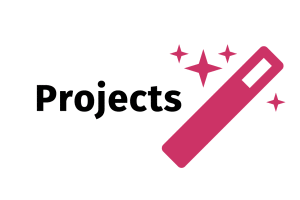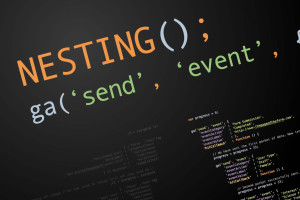jQuery ScrollAppear Plugin
If you have suggestions for features, improvements or spot any bugs, leave a comment at the bottom of the page or alternatively log an issue on GitHub.
What is jQuery ScrollAppear?
jQuery ScrollAppear is a powerful and agile content appear on scroll (or on other event triggers) plugin for jQuery. jQuery ScrollAppear expands on the basic scroll appear functionality to include:
- History of what has been shown as result of the plugin;
- Ability to revert part/all of what has been shown;
- Ability to directly show elements without the user having to trigger a monitored event;
- Ability to prevent mass scroll/appear of content by setting a timeout between events (in a similar fashion to hoverIntent);
- Set a pixel offset for your trigger element;
- Set the number of event triggers to be performed before the event is unbound.
jQuery ScrollAppear is both JSLint and JSHint compliant.
How to use it?
In it’s simplest form:
$('.itemone').ScrollAppear({
ElementAffect: '.itemtwo',
AddClass: 'itemthree'
});- itemone: Used to check if the element is currently viewable in the viewport;
- itemtwo: What will be shown/hidden;
- itemthree: The class that will be added to itemtwo.
A-Z parameter list
- AddClass [required]
- Callback Since 1.0.5
- DelayEffect
- EffectDuration
- ElementEffect [required]
- ElementsToShow (Number of elements to be displayed)
- NumberOfScrolls
- GatherAfterTrigger
- PixelOffset
- Timeout
- TriggerIntent
- TriggerType
AddClass [required]
The default class added will be scrollshow. Multiple classes can be added in the following fashion:
AddClass : 'classname-zero classname-one'
This parameter leverages the built-in jQuery api method .addClass.
Callback
A callback function triggered each time new elements are shown.
Callback : function (state) {
alert("New elements have been shown");
console.log(state.elementsToShow);
console.log(state.numberOfElements);
console.log(state.timesFired);
});
The callback function also passes in a state variable which you can read to get the current state of the ScrollAppear plugin (since 1.0.6).
- elementsToShow {array} – All remaining elements that are waiting to be displayed by the ScrollAppear plugin.
- numberOfElements {number} – Depending on GatherAfterTrigger, this will display the number of elements remaining.
- timesFired {number} – The number of times ScrollAppear has been fired.
DelayEffect
Default value is 0 and hence no delay is applied. Change this value to add a delay to each animation.
DelayEffect : 400
EffectDuration
Default value is set to 'fast'. This parameter can be either a number or a string as specified in the jQuery Animate Duration parameter documentation.
Numeric value
DelayEffect : 400
String value
DelayEffect : "slow"
ElementAffect [required]
Pass in the class of the elements that will be modified when the event is triggered.
ElementAffect : ".hiddenElement"
ElementsToShow
This parameter is used to determine how many elements to show (ElementAffect) when the plugin determines that itemone is in the viewport. This parameter only accepts a number.
ElementsToShow : 5
GatherAfterTrigger
Boolean value. Set to false by default so as to not update the DOM after each time ScrollAppear is triggered, this will make the plugin faster. Note, ScrollAppear automatically monitors the DOM for changes and gathers all eligible elements after each change. GatherAfterTrigger has a primary impact on the Callback state.numberOfElements property.
GatherAfterTrigger: true
NumberOfScrolls
This is used to constrain how many times the plugin will successfully execute. Default is set to 100. Only accepts a number value.
NumberOfScrolls: 20
PixelOffset
This can be used to refine when the trigger point for itemone by setting an offset. By setting a negative value the element will need to be visible plus the offset before the event will trigger. By setting a positive offset, the event will trigger before the element is visible plus the offset. Only accepts a number value, no “px” required.
Default value is set to 0.
PixelOffset : 200
Timeout
Used to set how long between monitoring the trigger event. A higher number is generally preferred to prevent mass triggering of the event which can cause undesirable strain on the browser if you have a significant number of hidden elements.
Accepts a number, default is 1000.
Timeout : 2000
TriggerIntent
Set to true by default. This value is used to determine if the plugin should check to see if itemone is in the viewport again after being triggered.
TriggerIntent : false
TriggerType
Accepts a string, default is "scroll". Refer to the following pages in the jQuery API for complete set of options:
TriggerType : "scroll"
A-Z Method List
BindEvent
The example below will bind the event to all DOM event types specified when the plugin was initialised. Refer to TriggerType.
jQuery(this).ScrollAppear('BindEvent');
An example of calling the meothd with a DOM event type specified.
jQuery(this).ScrollAppear('BindEvent', 'scroll');
Destroy
This method will remove the instance of the plugin from the page.
jQuery(this).ScrollAppear('Destroy');
HideElements
This will hide elements that have been shown as result of jQuery ScrollAppear.
It can be called in two ways:
- Removing the last iteration of elements shown
- Removing a specified number of elements shown by the plugin
Option 1
Option 1 gets the last iteration count from the ElementsToShow parameter.
jQuery(this).ScrollAppear('HideElements');Option 2
jQuery(this).ScrollAppear('HideElements', 4);ResetCounter
This will reset the NumberOfScrolls parameter back to 0.
jQuery(this).ScrollAppear('ResetCounter');
ShowElements
This will show the next iteration of elements, allowing you to bypass the event triggers that are in place.
jQuery(this).ScrollAppear('ShowElements');
UnbindEvent
The example below will unbind the event to all DOM event types specified when the plugin was initialised. Refer to TriggerType.
jQuery(this).ScrollAppear('UnbindEvent');
An example of calling the meothd with a DOM event type specified.
jQuery(this).ScrollAppear('UnbindEvent', 'scroll');
Version History
- Version 1.0.7 12 May 2016
- Test added for GatherElements when action.settings has not yet been defined by @xlshen.
- Version 1.0.6 16 February 2015
- Added Callback object that can be utilised if needed.
- Added GatherAfterTrigger property.
- Now JSLint compliant again
- Version 1.0.5 2 June 2014
- Add ability for a callback function to be called each time the ShowElements function fires. This can be set using the Callback parameter.
- Version 1.0.4 29 April 2014
- Add backwards compatibility for older browsers that don’t support
window.innerWidth/window.innerHeightandwindow.pageXOffset/window.pageYOffset
- Add backwards compatibility for older browsers that don’t support
- Version 1.0.3 19 April 2014
- Update demo URL and fix version number push with 1.0.2
- Version 1.0.2 18 April 2014
- HideElements function will now fallback to the ElementsToShow parameter if no value is passed into the function.
- Version 1.0.1 18 April 2014
- BindEvent and UnbindEvent now support the ability for the user to specify the event types. If none is specified it defaults to the initial TriggerType parameter
- Version 1.0.0 18 April 2014
- Create Manifest file for inclusion in jQuery Plugins site
- Add MIT license file
- Minor updates to formatting
- Added support for some new DOM manipulation event listeners




https://www.domsammut.com/?p=62#comment-282#Marcel
It`s a great plugin but it was a little bulky for my needs. I don`t need so may options, so I wrote this:
function check(){ if($(window).scrollTop()+$(window).height()>$(".footer").offset().top){ var ideal_number = Math.floor($(window).width()/200);//Number of blocks that fit in a row var add = ideal_number*2;//Add two rows var off = $(".show_this").length%ideal_number;//If the even row got messed up due to page resize if(off){add = ideal_number*2+(ideal_number-off);} var existing = $(".show_this").length; $(".page_item").slice(existing,existing+add).addClass("show_this"); } } $(document).ready(function(){ check(); setInterval(check,5000); });https://www.domsammut.com/?p=62#comment-283#Dom Sammut
Thanks for showing your final solution Marcel!
https://www.domsammut.com/?p=62#comment-284#Marcel
It’s not my final solution, I have edited it quite a bit since this post.
https://www.domsammut.com/?p=62#comment-271#Marcel
Is is possible to change the amount of items added when the function is triggered?
https://www.domsammut.com/?p=62#comment-277#Dom Sammut
It sure is, you can specify the number of elements to be added with this property: ElementsToShow
https://www.domsammut.com/?p=62#comment-279#Marcel
I completely misread that. I though it was element to show ie, the class name of the element to show when the footer is isible, but, ofcourse, that is something else.
https://www.domsammut.com/?p=62#comment-280#Dom Sammut
Thanks for the feedback, I’ve updated the description in the initial list of properties for the documentation to better describe what that ElementsToShow actually does :)
https://www.domsammut.com/?p=62#comment-270#Marcel
I am having some trouble implementing this. I set up a simple test page with 100 divs and a footer. I cannot get the plugin to add the classes when the footer is in view.
https://www.domsammut.com/?p=62#comment-276#Dom Sammut
Hey Marcel,
Have you tried adjusting the PixelOffset? Can you provide an example on jsfiddle.net or somewhere similar?
Cheers
Dom
https://www.domsammut.com/?p=62#comment-278#Marcel
Nevermind I figued it out. The scroll never fired because the body was not tall enough to actually scroll. I made the first 3 rows load automatically. I would have replied sooner but earlier, I could not see my comment.
https://www.domsammut.com/?p=62#comment-281#Dom Sammut
Sorry about Marcel, glad you sorted it out :)
https://www.domsammut.com/?p=62#comment-82#Michael Akers
Dom, this is a cool plugin, but I have an issue in the code. I see in the js file the .each section with the list of actions that if found in the page interferes with the plugin operation (passing DomUpdate as the object instead of the ScrollAppear settings). I comment that section out and everything works. Where I am trying to use it I have other page elements being modified with .append or .each and the presence of those methods causes your plugin to not operate. Mainly I’m wondering what that section is meant for?
https://www.domsammut.com/?p=62#comment-83#Dom Sammut
Thanks Michael. The section you’ve mentioned (Line 244 onwards) is there to basically monitor the DOM for any elements that might be added after the plugin has been initialised without having to call
jQuery(".myclass").ScrollAppear("DomUpdate");. The demo page demonstrates (the Add Elements button) adding manually created elements on click (after the plugin has been initialised) using theinsertBeforejQuery function, which are then picked up by the plugin. I also ran a quick test using.append()and it worked fine. Where have you placed your code in relation to invocation of jQuery ScrollAppear? What version of jQuery are you using? Do you have a link to a page where I can view this issue?https://www.domsammut.com/?p=62#comment-73#Vladimir Nikolic
great job! Is it possible to attach a loader gif on scrolling?
https://www.domsammut.com/?p=62#comment-74#Dom Sammut
It sure would be. I have tried to steer clear of implementing that type of functionality in the plugin as I felt that this would be best left to the user to implement based on their requirements. If you have a working example, I’d be happy to give some pointers.
Would the addition of having the ability to call a function each time a scollappear event is fired be helpful?
e.g. something like
$("#test").ScrollAppear({
CallOnShow : myfunction()
});
https://www.domsammut.com/?p=62#comment-75#Marco
Hello
I was wondering whether you had a quick example how to use this jquery plugin pulling in wordpress posts – what I’m actually trying to do is to pull in some wordpress galleries – since WP gallery doesn’t support pagination I try to use the offset parameter. hope you got some code to get me going.
Thank you
https://www.domsammut.com/?p=62#comment-77#Dom Sammut
Hi Marco,
Unfortunately I don’t have any code for pulling in paginated WordPress galleries, that’s not really within the scope of jQuery ScrollAppear.
I am looking to push an update to the plugin within the next month to support a callback function as outlined in my previous comment. You could potentially hook an ajax call inside that function, but I don’t have any code examples for this as I don’t use WordPress galleries.
If you work out how to pull in more galleries into the page and they have the same classes as you’ve used in the initialisation of jQuery ScrollAppear, the plugin will automatically bind to these new elements created (assuming you’ve added them with jQuery) and show them on scroll. The jQuery ScrollAppear demo page has an example of this when you click the “AddElements” button.
If you have any more questions just let me know or if you’d like link me to some of your work in progress I can provide some pointers.
Cheers
Dom
https://www.domsammut.com/?p=62#comment-95#Dom Sammut
Hi Marco,
Following up from my previous comment, I’ve added a new parameter to the plugin that allows you to pass a callback function each time more elements are displayed. Hopefully this might give you a little help :)
Cheers
Dom